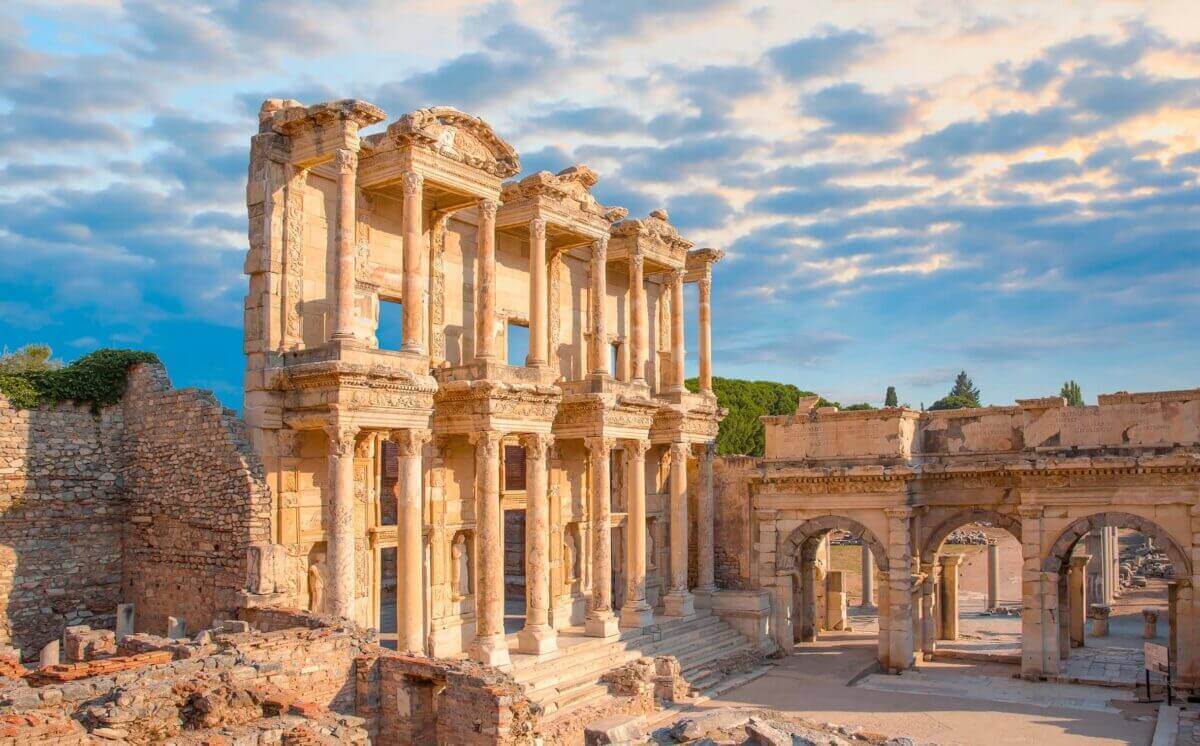Ephesus, one of the most renowned ancient cities in Anatolia (modern-day Türkiye), boasts a history that dates back over three millennia.
Historical Background of Ephesus:
Ephesus, one of the most renowned ancient cities in Anatolia (modern-day Turkey), boasts a history that dates back over three millennia. Its story is one of a vibrant, thriving city that played a pivotal role in the cultural, religious, and economic life of the Eastern Mediterranean.
Founding and Early History: Ephesus was originally founded by Ionian Greek settlers around the 10th century BC, though there is evidence of earlier Bronze Age settlements in the area. Its strategic location near the Aegean Sea and the Meander River contributed to its early success as a trading hub.
Hellenistic and Roman Period: Ephesus enjoyed its golden age during the Hellenistic and Roman periods. The city became a center of culture and learning, known for its library, theater, and other architectural marvels. It was under Roman rule that the city reached its zenith. The grand Temple of Artemis, dedicated to the goddess of the hunt, stood as a testament to the city’s importance.
Early Christianity: Ephesus holds significance in early Christianity due to its association with St. Paul and the presence of the Ephesians in the New Testament. The city was an important center for Christian communities, and it is believed that the Gospel of John was written here.
Decline and Abandonment: As trade routes shifted and the harbor gradually silted up, Ephesus began to decline. The city faced a series of challenges, including invasions, earthquakes, and changing political dynamics. By the 7th century AD, it had largely been abandoned.
Archaeological Discoveries and Ongoing Excavations:
Ephesus’s archaeological significance was first recognized in the 19th century, and systematic excavations began in the 20th century. These efforts, under the guidance of institutions like the Austrian Archaeological Institute and the Turkish Ministry of Culture, have uncovered an array of remarkable structures and artifacts.
Key Discoveries:
- The Library of Celsus: One of the most iconic structures in Ephesus, the Library of Celsus was constructed to honor Tiberius Julius Celsus Polemaeanus, the governor of the province of Asia. It contained thousands of scrolls and served as both a library and a mausoleum.
- The Great Theater: This massive Roman theater, with a capacity for up to 25,000 spectators, was not only used for theatrical performances but also for assemblies and events.
- Terrace Houses: These well-preserved residential buildings showcase the wealth and lifestyle of Ephesus’s elite. They feature intricate mosaics, frescoes, and advanced infrastructure.
Historical Figures and Events Associated with Ephesus:
- Artemis of Ephesus: The city’s eponymous goddess was a major figure in Greek and Roman mythology and was associated with fertility and hunting.
- St. Paul: The apostle St. Paul is believed to have visited and preached in Ephesus during his missionary journeys.
- Gospel of John: Traditionally attributed to St. John the Evangelist, the Gospel of John is said to have been written in Ephesus.
- Emperor Augustus: Augustus, the first Roman emperor, made Ephesus the capital of the Roman province of Asia, which boosted its status and prosperity.
Today, Ephesus is a UNESCO World Heritage site and continues to be a significant archaeological site where ongoing excavations provide new insights into the city’s history. It stands as a captivating window into the past, offering visitors a remarkable journey through the grandeur of antiquity.
